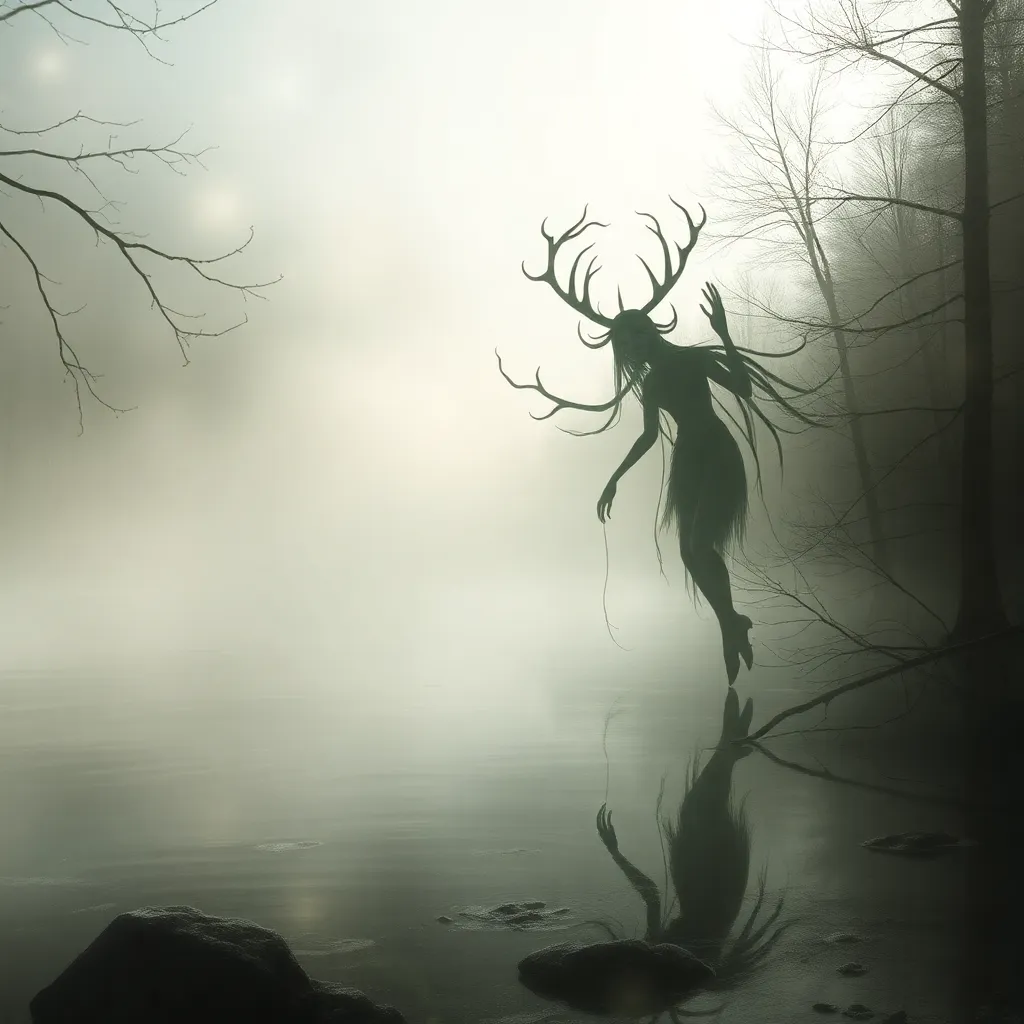The Rusalka’s Warning: Understanding the Ecology of Water Spirits in Slavic Belief Systems
I. Introduction
The Rusalka is a significant figure in Slavic mythology, embodying the complex relationship between humans and nature, particularly water bodies. These enchanting water spirits, often depicted as beautiful young women, are deeply intertwined with the folklore and cultural practices of Slavic societies. Understanding the Rusalka and other water spirits is crucial not only for appreciating Slavic heritage but also for recognizing their ecological roles and the messages they convey about the state of our environment.
Water spirits like the Rusalka serve as vital symbols in Slavic belief systems, representing the life-giving and destructive powers of water. Their stories often reflect the interconnectedness of human life and the natural world, underscoring the importance of maintaining ecological balance. This article aims to explore the ecological roles of water spirits, particularly the Rusalka, and their significance in contemporary environmental discussions.
II. The Rusalka: Definition and Characteristics
A. Description of the Rusalka as a water spirit
The Rusalka is typically portrayed as a young woman who resides in rivers, lakes, and other water bodies. Often depicted with long flowing hair and a shimmering appearance, she embodies the allure and danger of water. In many tales, the Rusalka is associated with the spirits of young women who died tragically, especially those who suffered in love.
B. Variations of the Rusalka across different Slavic cultures
While the Rusalka is a common figure, her characteristics and stories vary across different Slavic cultures:
- Russian Rusalka: Often depicted as a vengeful spirit, luring men to their doom.
- Ukrainian Rusalka: Celebrated during the Rusalka week, a time when people honor water spirits with rituals.
- Polish Rusalka: Sometimes seen as a benevolent figure, offering protection to fishermen.
C. The dual nature of the Rusalka: benevolent and malevolent aspects
The Rusalka embodies a dual nature, representing both the beauty and danger of water. She can be benevolent, aiding those who respect her domain, or malevolent, punishing those who disrespect nature. This duality reflects the unpredictable nature of water itself, capable of nurturing life or causing destruction.
III. The Ecological Role of Water Spirits
A. Symbolic representation of natural water bodies
Water spirits like the Rusalka symbolize the essence of rivers, lakes, and streams. They serve as guardians of these ecosystems, reminding communities of the need to respect and protect their water sources.
B. Connection to the health of aquatic ecosystems
In folklore, the well-being of the Rusalka is often linked to the health of the aquatic environment. A thriving Rusalka signifies clean, healthy waters, while her distress indicates pollution or ecological imbalance. This connection emphasizes the importance of maintaining water quality and biodiversity.
C. Influence on local biodiversity and water quality
The presence of water spirits in local folklore promotes a sense of stewardship towards aquatic ecosystems. Communities that honor these spirits are more likely to engage in sustainable practices that protect biodiversity and enhance water quality.
IV. Cultural Significance of Water Spirits in Slavic Folklore
A. Myths and legends surrounding the Rusalka
The myths of the Rusalka are rich and varied, often revolving around themes of love, loss, and nature’s wrath. These stories serve as cautionary tales, warning against the dangers of neglecting the environment.
B. Rituals and traditions involving water spirits
Many Slavic cultures have rituals to appease water spirits. These may include:
- Offering flowers or bread at riverbanks.
- Performing dances and songs during summer festivals.
- Creating rituals during the Rusalka week to honor the spirits.
C. The role of water spirits in agricultural practices and seasonal cycles
Water spirits are also linked to agriculture, as water is vital for crop growth. Farmers often performed rituals to ensure favorable weather and healthy water sources, recognizing the Rusalka’s influence over the life cycles of their crops.
V. The Rusalka’s Warning: Environmental Indicators
A. Interpreting the Rusalka’s warning as a metaphor for ecological distress
The Rusalka’s narrative can be interpreted as a metaphor for ecological distress. As her presence diminishes or becomes malevolent, it reflects the human impact on the environment. This serves as a warning to communities to take action against environmental degradation.
B. Contemporary issues: pollution, habitat loss, and climate change
Modern environmental issues such as pollution, habitat loss, and climate change resonate with the Rusalka’s stories. The decline of water quality and biodiversity mirrors the distress of the Rusalka, emphasizing the urgent need for ecological conservation.
C. Case studies of environmental crises linked to local folklore
Several environmental crises have been documented alongside local folklore, where the deterioration of water bodies has led to a resurgence of Rusalka legends, indicating ecological imbalance:
- The pollution of the Volga River in Russia and its impact on local Rusalka stories.
- Declining fish populations in Ukrainian lakes leading to revived rituals to honor the Rusalka.
VI. Modern Interpretations and Revivals
A. The resurgence of interest in Slavic mythology and water spirits
In recent years, there has been a resurgence of interest in Slavic mythology, particularly in the context of environmental awareness. Scholars and artists are exploring the ecological messages embedded in these ancient stories.
B. Integration of ecological awareness in cultural heritage
Modern interpretations of the Rusalka are increasingly focused on ecological themes, integrating messages of conservation and respect for nature into cultural heritage practices.
C. Artistic representations of the Rusalka in literature and media
The Rusalka has inspired numerous artistic representations in literature, music, and visual arts, often highlighting her role as a guardian of water and a symbol of ecological balance.
VII. Cross-Cultural Comparisons
A. Similarities between Slavic water spirits and other global water deities
Water spirits in Slavic mythology share similarities with water deities from other cultures, such as:
- The Naiads of Greek mythology.
- The Nixies of Germanic folklore.
- The Japanese Yurei associated with bodies of water.
B. The role of folklore in environmental stewardship across cultures
Folklore often serves as a vehicle for environmental stewardship, teaching communities about the importance of respecting natural resources and the consequences of ecological neglect.
C. Lessons from Slavic beliefs for contemporary ecological practices
Slavic beliefs about water spirits offer valuable lessons for contemporary ecological practices, emphasizing the interconnectedness of life and the importance of sustainable interactions with the environment.
VIII. Conclusion
In conclusion, the Rusalka holds significant ecological and cultural importance within Slavic belief systems. As a symbol of water bodies and the health of aquatic ecosystems, her presence serves as a reminder of the delicate balance between humanity and nature. Preserving folklore and understanding the ecological messages it conveys are vital for promoting environmental awareness and sustainable practices.
As we face contemporary environmental challenges, integrating traditional ecological knowledge into modern conservation efforts can help foster a deeper connection to our natural world. By honoring the Rusalka and other water spirits, we can cultivate a culture of respect and stewardship for the ecosystems that sustain us.



